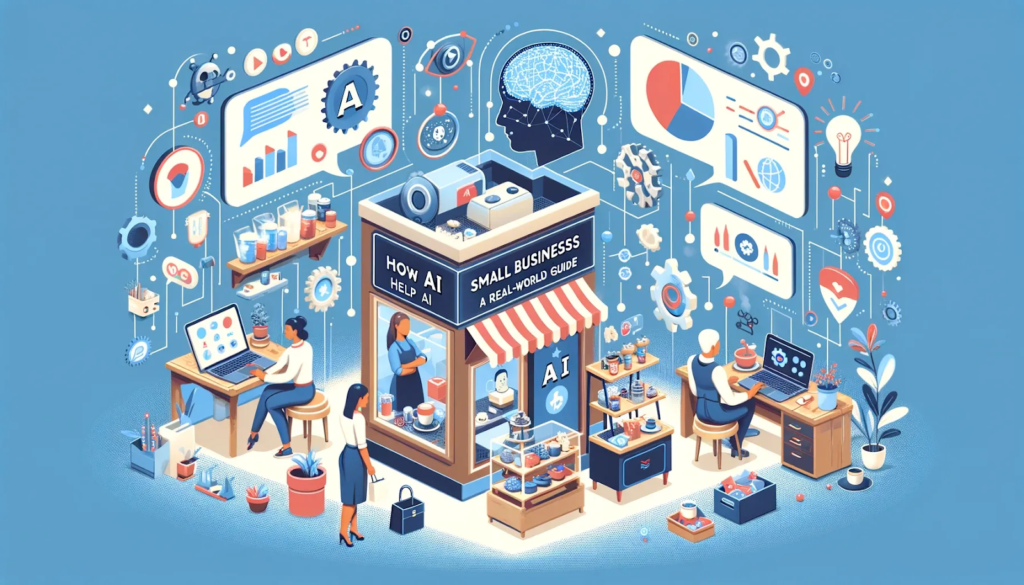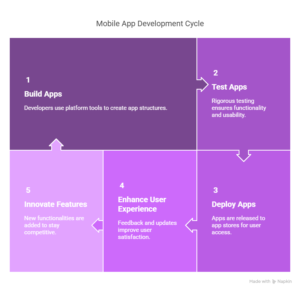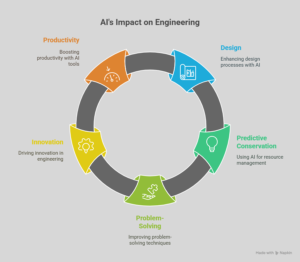AI Play for SMBs: Applications, Myths, and Adoption Tips
In today’s fast-paced digital landscape, artificial intelligence (AI) is no longer a luxury reserved for large enterprises. Small and medium-sized businesses (SMBs) are increasingly recognizing the transformative potential of AI to streamline operations, enhance customer experiences, and drive growth. However, misconceptions and challenges often hinder SMBs from fully embracing this technology. This article explores the practical applications of AI for SMBs, debunks common myths, and provides actionable tips for successful adoption.
Applications of AI for SMBs
AI offers a wide range of applications that can help SMBs compete more effectively in their markets. Here are some key areas where AI can make a significant impact:
1. Customer Support and Engagement
AI-powered chatbots and virtual assistants can handle customer inquiries 24/7, providing instant responses and freeing up human resources for more complex tasks. These tools can also personalize interactions by analyzing customer data, improving satisfaction and loyalty.
2. Marketing and Sales Optimization
AI can analyze customer behavior and preferences to deliver targeted marketing campaigns. Predictive analytics helps SMBs identify potential leads, optimize pricing strategies, and forecast sales trends, enabling smarter decision-making.
3. Operational Efficiency
From inventory management to supply chain optimization, AI can automate repetitive tasks and reduce errors. For example, AI-driven tools can predict demand, manage stock levels, and even automate order processing.
4. Financial Management
AI-powered accounting software can streamline bookkeeping, detect anomalies, and provide real-time financial insights. This helps SMBs manage cash flow more effectively and make data-driven financial decisions.
5. Human Resources
AI can simplify recruitment by screening resumes, scheduling interviews, and even assessing candidate fit. It can also assist in employee onboarding, training, and performance evaluation.
6. Cybersecurity
SMBs are often targets of cyberattacks due to limited resources for robust security measures. AI can enhance cybersecurity by detecting unusual patterns, identifying potential threats, and responding to breaches in real time.
Debunking Common Myths About AI for SMBs
Despite its potential, AI adoption among SMBs is often hindered by misconceptions. Let’s address some of the most common myths:
1. Myth: AI is Too Expensive for SMBs
While AI implementation can require an initial investment, many affordable and scalable solutions are now available. Cloud-based AI tools and subscription models make it easier for SMBs to access AI capabilities without significant upfront costs.
2. Myth: AI is Only for Tech-Savvy Businesses
You don’t need a team of data scientists to leverage AI. Many AI tools are designed with user-friendly interfaces, allowing non-technical users to implement and benefit from them.
3. Myth: AI Will Replace Human Workers
AI is not about replacing humans but augmenting their capabilities. By automating mundane tasks, AI allows employees to focus on higher-value activities that require creativity and critical thinking.
4. Myth: AI is a One-Size-Fits-All Solution
AI is highly customizable and can be tailored to meet the specific needs of different businesses. SMBs can start with small, targeted applications and scale up as they see results.
5. Myth: AI is a Passing Trend
AI is here to stay and is rapidly becoming a cornerstone of modern business operations. Early adopters are already reaping the benefits, and SMBs that delay adoption risk falling behind competitors.
Tips for Successful AI Adoption in SMBs
Adopting AI doesn’t have to be overwhelming. Here are some practical tips to help SMBs get started:
1. Identify Clear Use Cases
Start by identifying specific pain points or areas where AI can add value. Whether it’s improving customer service, optimizing marketing, or streamlining operations, having a clear goal will guide your AI strategy.
2. Leverage Off-the-Shelf Solutions
Many AI tools are designed for SMBs and require minimal customization. Look for solutions that integrate seamlessly with your existing systems and workflows.
3. Start Small and Scale Gradually
Begin with a pilot project to test the waters. Once you see positive results, you can expand AI adoption to other areas of your business.
4. Invest in Training
Ensure your team understands how to use AI tools effectively. Provide training and resources to help them adapt to new technologies.
5. Partner with Experts
If you lack in-house expertise, consider partnering with AI consultants or vendors who can guide you through the implementation process.
6. Monitor and Measure Results
Track the performance of your AI initiatives and gather feedback from users. Use this data to refine your approach and maximize ROI.
7. Prioritize Data Quality
AI relies on data to function effectively. Ensure your data is accurate, clean, and well-organized to get the most out of your AI investments.
8. Stay Informed About Trends
The AI landscape is constantly evolving. Stay updated on the latest developments and innovations to ensure your business remains competitive.
Conclusion
AI is no longer a distant dream for SMBs—it’s a practical tool that can drive efficiency, innovation, and growth. By understanding its applications, dispelling myths, and following best practices for adoption, SMBs can harness the power of AI to thrive in an increasingly competitive marketplace. The key is to start small, stay focused on clear objectives, and continuously adapt to the evolving technological landscape. With the right approach, AI can be a game-changer for SMBs, unlocking new opportunities and paving the way for long-term success.





